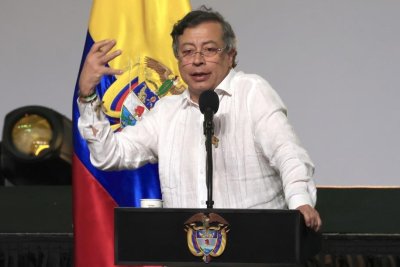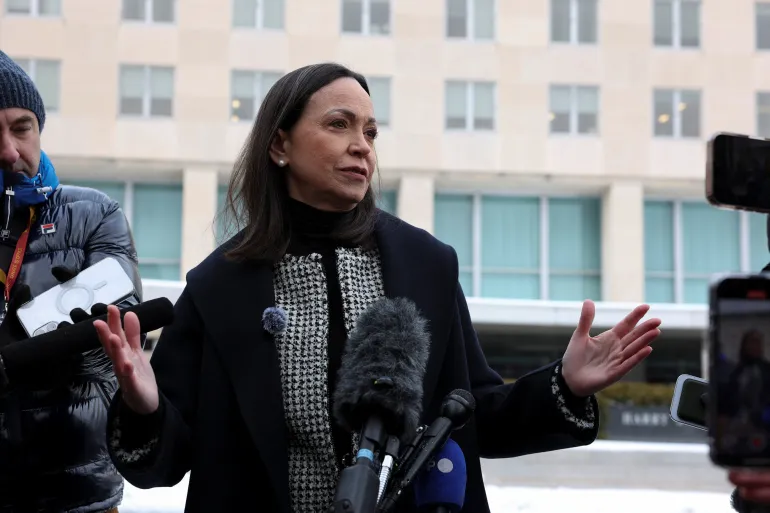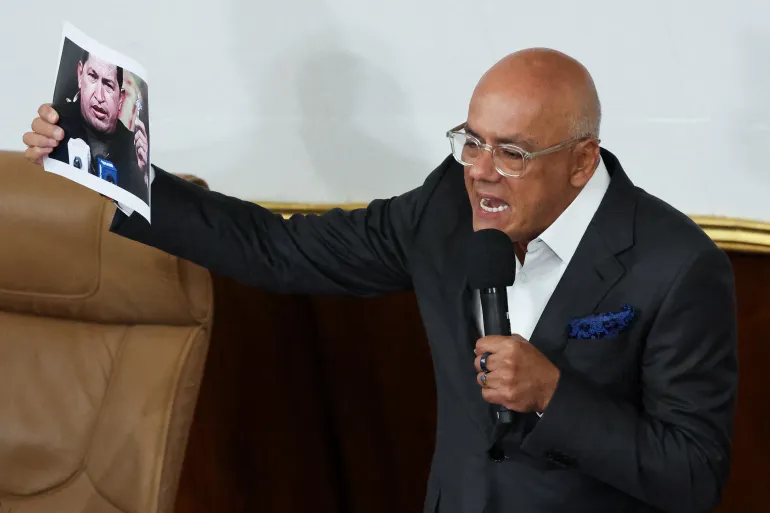Colombia’s president formalizes request for constituent assembly

Colombian President Gustavo Petro has been the main advocate of the initiative to reform Colombia’s Constitution. He first raised the possibility of a constituent assembly nearly two years ago and revived the proposal in recent months. Photo by Ricardo Maldonado Rozo/EPA
Feb. 25 (UPI) — Colombian President Gustavo Petro signed a formal request to begin convening a National Constituent Assembly, joining members of his Cabinet at a ceremony in Cartagena.
The initiative, the government said, responds to what it describes as an “institutional blockade” that has hindered approval of several social and economic reforms promoted by the executive branch.
The call for a constituent assembly, already authorized by the relevant electoral authority, requires support from more than 2 million citizens, equivalent to 5% of the national voter registry.
A citizen-led committee has been formed to gather the required signatures within six months. The committee aims to collect 3 million signatures, although Petro had previously suggested a goal of 10 million, local newspaper El Espectador reported.
Petro has been the main advocate of the initiative to reform Colombia’s Constitution. He first raised the possibility of a constituent assembly nearly two years ago and revived the proposal in recent months.
The president has framed the effort as a way to “deepen social reforms” that he argues are necessary for Colombians. He has said the proposals would be of “popular initiative” and that “any citizen will be able to submit proposals,” although they would ultimately be subject to the decision of a citizen committee.
Opposition sectors have criticized the proposal because it would unfold during an active electoral calendar.
Critics argue that the signature-gathering process could allow government-aligned figures, including public officials, to campaign in ways that benefit left-wing candidates in the March congressional elections and the May presidential vote, newspaper El Tiempo reported.
Petro has outlined nine thematic areas that would guide the constituent debate. These include changes to the pension system, healthcare, education, public utilities and the mining code, as well as initiatives related to data sovereignty and artificial intelligence.
He has also proposed deepening agrarian reform and strengthening Colombia’s adaptation and mitigation efforts in response to climate change.
The proposal also calls for a new territorial framework for the country, a judicial reform and changes to the political and electoral system, including adjustments to campaign financing, mandatory voting and recall mechanisms.
It further contemplates immediate legislative implementation of the 2016 peace accords with former guerrilla group FARC, policies addressing drug trafficking and measures aimed at comprehensive national security.
The possibility of holding a constituent assembly remains in its early stages.
If the required number of signatures is reached, the proposal must be debated in Congress. If lawmakers approve it, a national referendum would be called for voters to decide whether to convene the assembly, El Expreso reported. The process also would require review by Colombia’s Constitutional Court.







